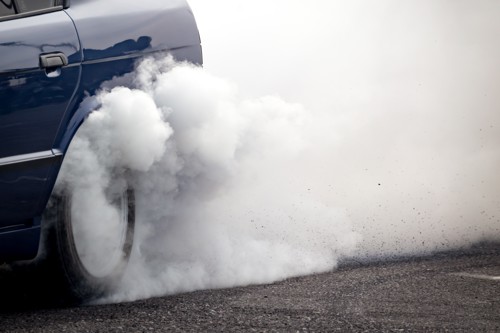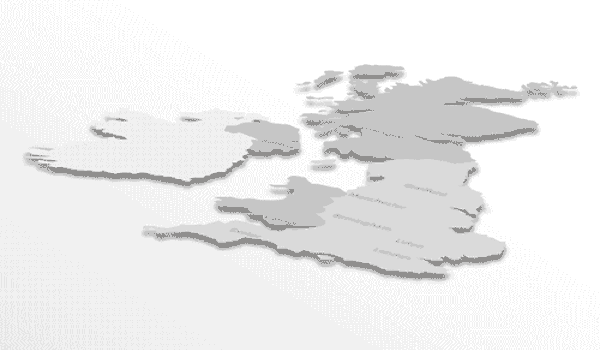New towns and cities revealed as targets of dangerous 'Crash for Cash' scams as gangs expand areas

The Insurance Fraud Bureau (IFB) is today warning drivers in the following towns and cities to be vigilant to dangerous ‘Crash for Cash’ scams, as it reveals gangs are increasingly spreading out from their typical crime hotspots to stage collisions in unsuspecting areas.
Top 10 new areas (by frequency) targeted by ‘Crash for Cash’ gangs in past 12 months
|
1. Frome, Somerset 2. Worksop, Nottinghamshire 3. Cirencester, Gloucestershire 4. Milton Keynes, Buckinghamshire 5. Nottingham, Nottinghamshire |
6. Shrewsbury, Shropshire 7. Warrington, Cheshire 8. Ashby, Leicestershire 9. Leicester, Leicestershire 10. Derby, Derbyshire |
Over the past 12 months the IFB has found evidence that gangs using addresses in well-established ‘Crash for Cash’ hotspots - such as Birmingham – are increasingly travelling out to unsuspecting areas to cause collisions with locals less familiar to the scam.
The IFB is formally investigating over 170 collisions specifically linked to this new activity. However, it is believed these figures only scratch the surface and there are concerns that if local drivers don’t know to look out for signs of the scam and report it, cases could rise fast.
Ben Fletcher, Director at the IFB, said:
“’Crash for Cash’ fraudsters are known to evolve their tactics and the latest evidence shows that they’ve started spreading out from prominent crime hotspots to less suspecting towns and cities in the hope that they can avoid detection.
“This change in tactic brings home the fact that no matter where people may live, everyone should be on their guard to these reckless car crash scams. To help us stop cases from rising and bring these fraudsters to justice, we urge drivers to look out for signs of ‘Crash for Cash’ scams and to report any evidence of it to us straight away.”
There is evidence to suggest these gangs are even targeting rural villages with the dangerous tactic. IFB previously reported that the village of Beckington which is just 3 miles from Frome and has a population of only 980 people, had also been targeted.
In addition to the IFB’s identification of new areas at risk for ‘Crash for Cash’ scams, the police are expressing concerns that the cost-of-living crisis could make these scams more prevalent.
Tom Hill, Detective Chief Inspector at City of London Police’s Insurance Fraud Enforcement Department (IFED), said:
“As we have seen in the past, a rise in cost of living and resulting financial hardships can often drive people to commit fraud. Unfortunately, this means that the public need to be even more alert than usual to fraudsters, like ‘Crash for Cash’ drivers.
“These criminals are reckless and show zero regard for the safety of other road users. It is important to learn the tell-tale signs that often precede an induced collision, as these can protect you from falling victim to this type of fraud. Of course these fraudsters can’t always be avoided, so if you do think you have been targeted, make sure to report your suspicions."
‘Crash for Cash’ scams are prevalent in the UK with IFB analysis indicating that every four minutes a motor insurance claim is linked to the scam. These range from paper-based fabrications, or vehicles being damaged behind closed doors, through to the most dangerous where collisions are being caused by fraudsters with innocent road users.
The IFB’s investigations have found countless people have suffered inconvenience, expense and even injury from orchestrated motor collisions. In a few tragic instances, some victims have also sadly lost their lives to the scam.
‘Crash for Cash’ scams that involve innocent drivers are typically carried out by fraudsters who slam on their brake at busy junctions and roundabouts so the driver behind cannot stop in time. Sometimes this is done with an accomplice in a second vehicle driving erratically in front, so they can divert the victim’s suspicions by saying the driver in front (who has since fled the scene) caused the accident.
They are also known to encourage other drivers to pull out of side roads or wait until they creep forward for a better view, only to crash into the side of them.
Avoiding 'Crash for Cash' scams
Keep a good distance
Always keep a good distance from the vehicle in front. According to the DVSA (Driver and Vehicle Standards Agency) the time required to safely stop is:
- 2 seconds in dry conditions.
- 4 seconds in wet conditions.
- 20 seconds in icy or snowy conditions.
Stay alert
- Drive safe and stick to the highway code.
- Look ahead to spot any potential hazards including unusual driving behaviour.
- Focus on vehicles and not just their lights, as fraudsters often disable brake lights.
- Be cautious when pulling out of a side road, especially if encouraged by another driver.
- If other drivers or their passengers are behaving suspiciously, or the condition of their vehicle is poor (such as rear dents), stay calm and keep back.
Know the signs of a ‘Crash for Cash’
- The driver or their passengers appear to be unphased after the collision.
- The driver or their passengers appear to exaggerate injuries.
- Pre-written insurance information is handed over.
Reporting ‘Crash for Cash’ scams
Note as much information as possible about the driver, passengers and circumstances of the collision. This can include written info, pictures, dashcam footage and noting CCTV in the area.
Make sure to exchange insurance details as legally required and never confront the other driver and/or their passengers as it could place people in harms’ way.
If you have evidence of a 'Crash for Cash' scam, it should be reported to the IFB’s confidential CheatLine service at insurancefraudbureau.org/cheatline or 0800 422 0421. It should also be reported to the police via Action Fraud at actionfraud.police.uk or 0300 123 2040.”


